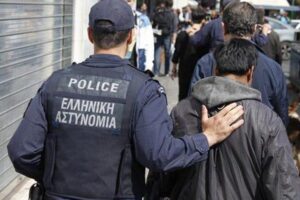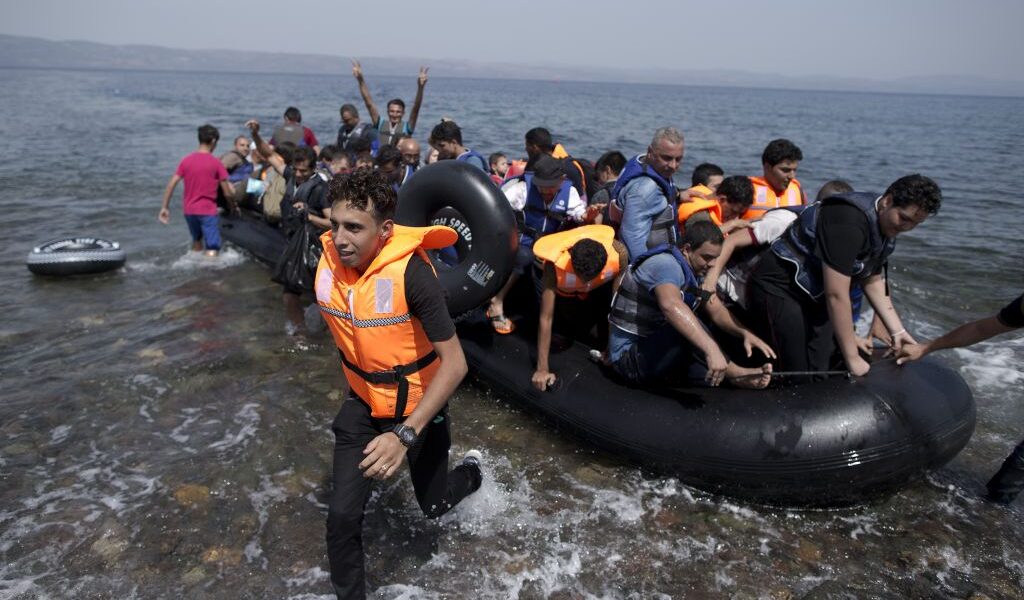Greek police have dismantled an organized human trafficking network in Lesvos, in which a total of four Non-Governmental Organizations (NGOs) are involved. A case has already been filed against 33 NGO members - including Germans, Swiss, French, Bulgarians, Spaniards, Austrians and Norwegians.
According to the police, the organization started its activity last June and it is estimated that in 32 trips to transfer illegal immigrants to Greece, more than 3,000 people entered the country.
The network used closed groups on Facebook and messaging apps to share information about where the boats would leave and arrive, providing a lot of information.
What the police are looking for now is the end of these networks.
The Greek police statement is as follows:
"After many months of investigations by the Mytilene Security Sub-Directorate, the action of an organized network was identified, which was systematically active in facilitating the illegal entry of foreigners into Greek territory, through the island of Lesvos.
The investigation was carried out in collaboration with the National Intelligence Service (E.Y.P.) and the assistance of the Counter-Terrorism Service (D.A.E.E.B), as well as the Directorates of Management and Analysis of Information (DI.DA. P.), Foreigners of Attica and Criminological Investigations (D.E.E.).
The Information Collection and Management Department of the General Assembly also participated, along with the the Department of Migration Management of Lesvos, the 9th Regional Administration of the Coast Guard and the Central Port Authority of Mytilene.
A criminal case was filed for offenses in forming and joining a criminal organization, espionage, violation of state secrets, as well as violations of the Immigration Code.
According to the research data, the organized network involves a total of (35) foreigners, of which 33 are members of four Non-Governmental Organizations (NGOs), which are active in immigration issues.
Chronologically, the action of the organized network is determined at least from the beginning of last June, in the form of providing substantial assistance to organized networks trafficking illegal migrants.
As for their methodology of action (modus operandi), those involved, under the pretext of humanitarian action, provided to refugee flows from Turkey, through closed groups and internet applications, information and confidential information, such as:
· The gathering places on the Turkish coast and the time of departure of specific refugee flows to the island of Lesvos;
· the coordinates (longitude and latitude) of specific refugee flows and their direction in a specific time and place;
· the number of foreign nationals boarding third countries in boats, as well as the prevailing situation during the voyage of the boats,
· their final destination (landing area),
· details of the accommodation in the Moria migrant camp on Lesvos.
In addition, through the extensive use of a specific application of telephone connections, which is related to the activation of rescue operations, they hindered the operational work of Hellenic Coast Guard vessels during the time when migratory flows were evolving.
From the data of the research so far, it appears that the organized network facilitated - with the methodology mentioned above - the movement of a large number of foreigners to the island of Lesvos in at least (32) cases (completed and attempted).
An investigation is under way to determine the full extent of the criminal organization's illegal activity and its links."




So we find that 33 foreign individuals, Germans, Swiss, French, Bulgarians, Spaniards, Austrians and Norwegians were effectively working together with the Turks as people smugglers. What will their national leaders say?